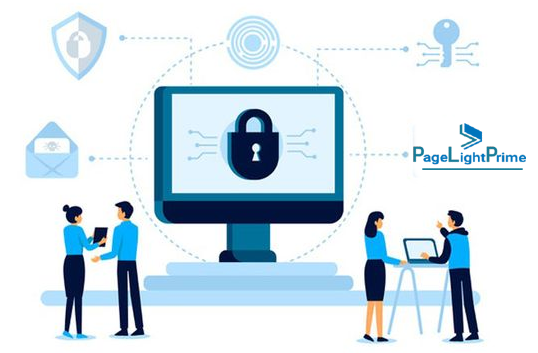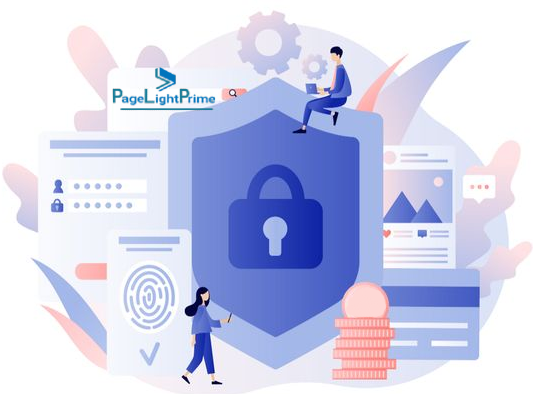Cybersecurity for Law Firms in 2023: Safeguarding the Digital Precinct
In today’s rapidly evolving landscape, where digital transformation is reshaping industries, law firms have embraced technology to enhance their efficiency, streamline processes, and provide better services to clients. However, with these technological advancements comes an ever-increasing threat – cybercrime.
Written by Knowledge Team, posted on August 28, 2023

Facing the Digital Threat Landscape
In the year 2023, ensuring cybersecurity within law firms goes beyond being a recommended action; it has become an absolute necessity. Given the nature of the legal sector involving the handling of confidential client data, it has emerged as a prime focal point for malicious cyber activities. Upholding the confidence of clients, maintaining the integrity of data, and guaranteeing uninterrupted operations all necessitate law firms to strengthen their digital realm through comprehensive cybersecurity strategies. Safeguarding the security of law firm data is not only a technological endeavor but also involves training and adherence to optimal practices.

The Evolving Cyber Threat Landscape
The cyber threat landscape is continuously evolving, and 2023 has seen its fair share of novel and sophisticated attacks. From ransomware campaigns targeting legal databases to phishing attacks that exploit unsuspecting staff, cybercriminals are finding new ways to breach law firms’ defenses. It’s crucial for law firms to stay informed about the latest threats and trends to implement effective countermeasures.
Data Protection Regulations and Compliance
Data protection regulations, such as the General Data Protection Regulation (GDPR) and the California Consumer Privacy Act (CCPA), have reinforced the importance of safeguarding client data. Law firms must ensure that their cybersecurity practices align with these regulations to avoid legal consequences and reputational damage. Regular audits and assessments can help law firms identify vulnerabilities and maintain compliance.
The Human Element: Training and Awareness
Despite the presence of advanced security technologies, the human element remains a significant vulnerability. Cybercriminals often exploit human behavior through social engineering tactics like phishing emails. Training staff to recognize and respond to such threats is critical. In 2023, law firms will invest more in cybersecurity awareness programs, educating employees about the risks and best practices for maintaining a secure digital environment.
Multi-Factor Authentication (MFA) and Strong Password Policies
Password-related breaches continue to be a leading cause of cyber incidents. Implementing strong password policies and promoting the use of multi-factor authentication (MFA) can significantly enhance a law firm’s security posture. MFA adds an extra layer of protection, requiring users to provide multiple forms of verification before accessing sensitive data or systems.

Zero Trust Architecture
The concept of Zero Trust has gained traction in the cybersecurity landscape, and law firms are taking note. Zero Trust architecture operates under the assumption that no one – whether inside or outside the organization – should be trusted by default. This approach enforces strict access controls, continuous monitoring, and least privilege principles, reducing the attack surface and minimizing the potential impact of breaches.
Secure Remote Work Practices
The COVID-19 pandemic accelerated the adoption of remote work, and in 2023, it remains a prevalent practice. Law firms need to ensure that remote work setups are secure, enabling employees to work from home or other locations without compromising sensitive information. Secure virtual private networks (VPNs), encrypted communication tools, and remote desktop protocols are essential components of a robust remote work cybersecurity strategy.
Incident Response and Business Continuity
In the face of cyberattacks, having a well-defined incident response plan is crucial. A prompt and effective response can mitigate the impact of a breach, prevent data loss, and minimize downtime. Law firms should regularly review and update their incident response plans, conduct mock exercises, and ensure that all employees are aware of their roles during a cyber incident.
Furthermore, business continuity planning should be an integral part of a law firm’s cybersecurity strategy. The ability to resume operations swiftly after a breach is crucial for maintaining client trust and minimizing financial losses. Backups, disaster recovery solutions, and redundant systems contribute to a firm’s resilience against cyber disruptions.
Third-Party Risk Management
Law firms often collaborate with various third-party vendors and partners, and these connections can introduce cybersecurity risks. In 2023, law firms are recognizing the need for robust third-party risk management practices. Thoroughly vetting third-party vendors, assessing their cybersecurity posture, and establishing clear security expectations through contracts can prevent third-party vulnerabilities from becoming a weak link in the security chain.
Encryption and Secure Communication
Protecting the confidentiality of client communications is a paramount responsibility for law firms. Encryption ensures that sensitive data remains unreadable to unauthorized parties. In 2023, law firms will prioritize end-to-end encryption for emails, files, and other forms of communication to prevent eavesdropping and unauthorized access.
Continuous Monitoring and Threat Hunting
The cybersecurity landscape is dynamic, with new threats emerging regularly. Law firms must embrace continuous monitoring and threat hunting to detect and mitigate threats in real time. Intrusion detection systems, Security Information and Event Management (SIEM) solutions, and advanced threat analytics can help law firms stay one step ahead of cybercriminals.
Elevating Legal Practice Management with Microsoft 365’s Fortified Security
In the fast-evolving landscape of legal practice, where the digital realm intertwines with traditional legal processes, the need for a comprehensive and secure legal practice management solution has never been greater. Enter PageLightPrime, a cutting-edge Legal Practice Management Solution meticulously built on the robust architecture of Microsoft 365 and Azure. With its innovative approach, PageLightPrime addresses the challenges of cybersecurity, compliance, and operational efficiency that law firms face in the year 2023.

A Holistic Approach to Cybersecurity
In a world where cyber threats are rampant and evolving, law firms can’t afford to cut corners on cybersecurity. PageLightPrime stands as a sentinel against digital threats, utilizing the fortified security framework of Microsoft 365 to safeguard every facet of your legal practice. From client data to confidential case files, the solution employs state-of-the-art encryption, multi-factor authentication (MFA), and continuous monitoring to ensure that your firm’s digital precinct remains impenetrable.
Compliance at the Core
Data protection regulations like GDPR and CCPA have raised the stakes for legal firms when it comes to compliance. PageLightPrime is meticulously crafted with compliance at its core. Leveraging Microsoft’s unparalleled commitment to regulatory adherence, the solution ensures that your firm remains in full alignment with data protection mandates. Seamlessly manage client consent, privacy preferences, and data retention policies within the solution, letting you focus on your cases, not compliance worries.
Empowering the Human Element
Recognizing that even the most advanced technologies are only as strong as the people using them, PageLightPrime places a heavy emphasis on empowering your team with knowledge. Through integrated cybersecurity awareness training modules, your staff can become a formidable line of defense against phishing attacks, social engineering, and other cybersecurity threats. This proactive approach cultivates a culture of vigilance and equips your team to navigate the digital landscape confidently.
PageLightPrime’s Multi-Layered Defense
At the heart of PageLightPrime’s security arsenal lies Microsoft 365’s Zero Trust architecture. This innovative approach flips the traditional security model on its head, assuming that no one – regardless of their location – should be trusted by default. With strict access controls, continuous monitoring, and the principle of least privilege, the solution significantly minimizes the attack surface and mitigates potential breaches.
Seamless Remote Work and Business Continuity
The rise of remote work has redefined the legal landscape, demanding solutions that can adapt to this new paradigm without compromising security or efficiency. PageLightPrime seamlessly integrates with Microsoft 365’s remote work capabilities, allowing your team to collaborate, access case files, and communicate securely from anywhere. Moreover, with Azure’s robust infrastructure, the solution ensures business continuity even in the face of disruptions, offering peace of mind to both your firm and clients.

Third-Party Risk Mitigation
Collaborations with third-party vendors are the norm in modern legal practice. However, each partnership introduces a potential point of vulnerability. PageLightPrime employs stringent third-party risk management protocols, thoroughly vetting vendors and ensuring that they adhere to your firm’s security standards. With this approach, the solution helps fortify your entire ecosystem against potential breaches.
Elevated Communication and Confidentiality
In the legal world, communication is the cornerstone of success. PageLightPrime ensures that client communications retain their confidentiality through end-to-end encryption, keeping sensitive information shielded from prying eyes. Whether it’s emails, file transfers, or virtual meetings, the solution guarantees that your interactions remain private and secure.
Continuous Vigilance and Threat Detection
Cyber threats are ever evolving, and staying ahead requires continuous vigilance. PageLightPrime employs advanced threat detection and intrusion prevention mechanisms through Microsoft’s Azure-powered Security Information and Event Management (SIEM) capabilities. By proactively hunting for potential threats, the solution helps your firm nip security breaches in the bud.
Guiding Law Firms Toward a Secure Future
In a world where client trust, data security, and operational resilience are paramount, PageLightPrime emerges as the ultimate ally for law firms. By harnessing the power of Microsoft 365 and Azure, the solution transforms legal practice management into a seamless, secure, and compliant endeavor. In a time where digital transformation is the norm, PageLightPrime is the beacon guiding your firm through the complexities of the digital precinct, ensuring that your focus remains where it truly matters – delivering exceptional legal services to your clients.
Building a Secure Future: Safeguarding Law Firms in the Digital Era
In conclusion, the cybersecurity landscape for law firms in 2023 is both challenging and dynamic. As the legal industry becomes increasingly digitized, the importance of safeguarding sensitive client data and maintaining operational continuity cannot be overstated. By staying updated on the latest cyber threats, complying with data protection regulations, fostering a culture of cybersecurity awareness, and adopting advanced security technologies, law firms can create a formidable defense against cyberattacks. In a world where digital trust is paramount, investing in cybersecurity is an investment in the future success and reputation of law firms.
